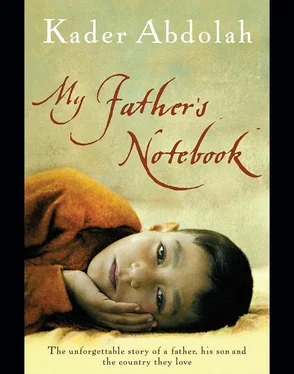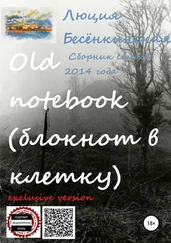The next day Hajar took Akbar to the palace. Never before had she shown any of her children to their father. She knocked on the door of his study and entered with Akbar in her arms. She paused for a moment, then laid the baby down on the desk and said, “My child is deaf and dumb.”
“Deaf and dumb? What can I do to help you?”
A few moments went by before Hajar could look him in the eye.
“Let my child bear your name.”
“My name?” he asked, and fell silent.
“If you’ll let him have your name, I promise never to bother you again,” said Hajar.
The nobleman remained silent.
“You once said you liked me, and once or twice that you respected me. And you said I could always ask you for a favour. I’ve never asked for anything before, because I didn’t need to, but now I beg you: let my child bear your name. Only that. I’m not asking you to make him an heir. Just to have Akbar’s name recorded in an official document.”
“The baby’s crying,” he said after a while. “Give him something to eat.”
Then he stood up, opened the window, and called to his servant, “Go and get the imam. Hurry up, we haven’t got all day!”
Before long, the imam arrived. Hajar was sent off to wait in another room while the two men discussed the matter behind closed doors. The imam wrote a few lines in a book, then drew up a document and had the nobleman sign it. The whole thing took only a few minutes. The imam rode back home on his mule.
“Here, Hajar, this is the document you wanted. But remember: keep it in a safe place and tell no one of its existence. Only after my death can it be shown to other people.”
Hajar tucked the document in her clothes and tried to kiss his hand.
“There’s no need for that, Hajar. You can go home now. But come and visit me often. I’ll repeat what I’ve said before: I like you and I want to go on seeing you.”
Hajar strapped her baby to her back and left. When she came down from the mountains, she knew she was carrying a child with a venerable name: Aga Akbar Mahmud Ghaznavi Khorasani.
The document turned out to be worthless. After the nobleman died, his heirs bribed the local imam and had Aga Akbar’s name removed from the will. Since Hajar hadn’t been expecting her child to inherit anything, it hardly mattered. She was satisfied with the name alone. Aga Akbar’s parentage was known. His father had roots that could be traced back to the palace on Lalehzar Mountain.
Akbar grew up, married and had children. And even though he was a simple carpet-weaver, he remained proud of his lineage. He kept with him at all times the document with his long name.
Akbar often talked about his father. He especially wanted his son Ishmael to know that his grandfather had been an important man, a nobleman on a horse with a rifle slung over his shoulder.
The nobleman was killed by a Russian. Just who the murderer was, nobody knew. A soldier? A gendarme? A Russian thief who sneaked over the border?
• • •
The mountain range where Aga Akbar lived and where his forefathers had lived before him bordered on Russia, known in those days as the Soviet Union. The southern part of the range belonged to Iran; the northern part, with its permanent layer of snow, to Russia.
No one knew, however, what that Russian soldier, or the Russian army, had been looking for in the mountains.
All that was left of the murder was a story that lived on in Aga Akbar’s memory.
When they were home by themselves, Akbar told the story to Ishmael, who was assigned the role of the nobleman on horseback. Akbar was the Russian soldier, wearing an army coat and a cap with a bold red insignia.
Ishmael, his wooden rifle slung over his shoulder, mounted a pillow. Aga Akbar put on his coat and cap and hid behind the cupboard, which served as a makeshift boulder.
Ishmael rode his horse — not too fast, not too slow, but sedately, as a nobleman should — past the cupboard. A head peeked out. The horseman went on riding for another few yards, then the soldier suddenly leapt out with a knife in his hand, took two or three giant steps and planted his knife in the horseman, who fell off his horse and died.
No doubt this story was largely a fantasy, but the death of Aga Akbar’s mother was very real.
“How old were you when Hajar died?” Ishmael signed.
Aga Akbar had no concept of time.
“She died when a group of unknown black birds perched in our almond tree,” he signed back.
“Unknown?”
“I’d never seen them before.”
“How old were you when the black birds perched in the tree?” Ishmael signed.
“My hands were cold, the tree had no leaves and Hajar no longer spoke to me.”
“No, I mean how old? How old were you when your mother died?”
“Me, Akbar. My head came up to Hajar’s chest.”
He had been about nine, Kazem Khan explained later. Hajar had been feeling ill, so she had gone to bed. Akbar had slipped in under the blankets and held his mother in his arms.
“Your mother died in your arms?” Ishmael signed.
“Yes, but how did you know?”
“Uncle Kazem Khan told me.”
“I crawled under the blankets. When she was sick, she used to talk to me and hold my hand. But this time she stopped talking, and her hand no longer moved. I was scared, really scared, so I stayed under the blankets, not daring to come out. Then a hand reached under the blankets, grabbed me and tried to pull me out. I held on to Hajar’s body, but Kazem Khan finally dragged me away. I cried.”
The next day the oldest woman in the family wrapped Hajar in a white shroud. Then several men came with a coffin and carried her to the cemetery.
After the funeral Kazem Khan took little Akbar with him.
“I wanted him to understand what death was,” he later told his nephew Ishmael. “So I rode over the mountains with him, in search of something that would show him that dying was part of life.
“I looked around in the snow, hoping to find a dead bird or a dead fox or maybe even a dead wolf. But on that cold winter day the birds flew more energetically than ever and the wolves bounded across the rocks. I stopped, sat him down on a boulder and pointed at the plants buried be neath the snow. ‘Look! Those plants are dead, too.’ But that wasn’t a good example. I saw an old mountain goat who could barely leap from one rock to another. ‘You see that goat? He’s going to die soon.’ No, that wasn’t a good example either.
“I was hoping that a bird would stop flying in mid-air and suddenly drop dead at our feet. But no birds dropped dead that day.
“I put Akbar back on the horse and we rode on.
“After a while, I saw the nobleman’s palace in the distance. It had been empty since his death. I rode over to it.”
“Why?”
“I had no idea. I just thought, Let’s have a look. I led the horse around to the back. Aga Akbar didn’t know what I was trying to do. ‘Stand on the horse’s back,’ I gestured to him, ‘and climb up onto the stone wall!’”
“‘Why?’ he signed.
“He didn’t want to. So I went first. I climbed up onto the wall and lay there. ‘Come on!’ I said. ‘Give me your hand.’
“I grabbed him, pulled him up and then helped him climb up onto the roof. We inched our way to the courtyard stairs.
“‘Don’t look so surprised,’ I said when we reached them. He didn’t want to go down the stairs.
“‘What are we going to do?’ he signed.
“‘Nothing, just look around. Come on, this palace belongs to you, too.’
“We walked gingerly down the stairs. He briefly forgot his mother. I even noticed a smile on his face.
“We went into the courtyard. I’d never been inside the palace before. I thought the doors would be locked, but they were open. I thought the rooms would be empty, but no, the furniture was all in place. The courtyard door had been blown open by the wind and the snow had drifted halfway down the hall. We went in.
Читать дальше












